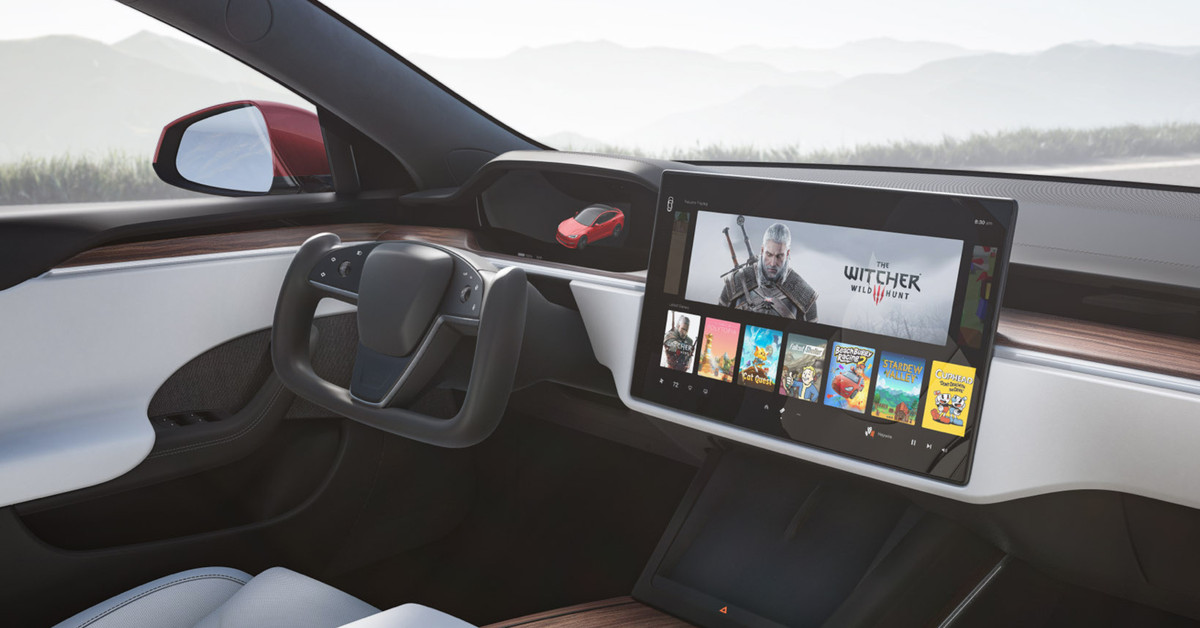
Tesla’s redesigned Model S and Model X will have a very unconventional and possibly controversial feature: automatic shifting between park, reverse, neutral, and drive (or PRND). There will be an option to change drive modes on the touchscreen, but CEO Elon Musk made the case for automatic shifting on Twitter late Wednesday night.
“Car guesses drive direction based on what obstacles it sees, context & nav map,” Musk tweeted. “After you drive without using a PRND stalk/stick for a few days, it gets very annoying to go back & use a shifter! You can override on touchscreen.”
An internal Tesla document obtained by Electrek expands, slightly, on what Musk means by “guesses”:
The vehicle uses its Autopilot sensors to intelligently and automatically determine intended drive modes and select them. For example, if the front of Model S/X is facing a garage wall, it will detect this and automatically shift to Reverse once the driver presses the brake pedal. This eliminates one more step for the drivers of the world’s most intelligent production cars.
That’s just one example, and we’ve asked Tesla for more, though the company reportedly no longer has a PR department and has not responded to questions The Verge sends to its general press line since September 2019.
The general idea behind the decision fits into the larger Silicon Valley ethos that Tesla subscribes to, though, of “eliminating friction.” The consequences of trying to automate PRND won’t be clear until people start taking deliveries of these new cars, which is supposed to happen in a matter of weeks.
Automakers have tinkered with PRND selectors for years, to sometimes deadly effect
Automakers have tinkered with the look and location of drive mode selectors for years, enabled by the rise of automatic transmissions and the ability to change modes via software (also known as “shift by wire”). Many companies have ditched the classic steering wheel stalk in favor of a knob on the dashboard or the center console or separate physical buttons.
Others have tried to mix hardware and software, but it has not gone well. Fiat Chrysler had to recall more than 1 million Jeeps, Dodges, and Chryslers because the interface — which involved a lever and a button that always returned to center position — caused enough confusion that some people were run over by their own vehicles. In fact, this “rollaway” problem is likely how actor Anton Yelchin died.
So-called “mode confusion” is a real concern even in simpler designs. In 2018, one of Fiat Chrysler’s own commercials showed actor Kathryn Hahn mistaking the Pacifica minivan’s rotary gear selector for a volume knob.
The removal of the PRND stalk that the Model S and Model X previously featured is part of a wider overhaul of the interior design of those vehicles, but it’s not the only one to conjure a debate about safety. Tesla has ditched its circular steering wheel in favor of one that’s U-shaped — a decision that Roadshow reports has already drawn the interest of the National Highway Traffic Safety Administration, the federal safety regulator for motor vehicles.
Regulators have been concerned about mode confusion for decades
When asked whether NHTSA is looking into Tesla’s decision to automate PRND, the agency answered with a fairly stock response: “Manufacturers must certify their vehicles [to] meet applicable Federal motor vehicle safety standards before putting them on the road,” and that it will require vehicles found noncompliant or that contain a safety defect to be recalled and may impose fines if a manufacturer does not recall vehicles in a timely manner.” The agency said it’s in “regular communication with manufacturers to discuss potential safety concerns” and that it reviews consumer complaints and company data to screen for safety risks.
While federal motor vehicle safety standard number 102 spells out the specific sequence of PRND, and number 114 covers some really basic rollaway issues, it does not appear that any others would necessarily preclude Tesla’s automation or the lack of a physical selector. That’s despite NHTSA saying this all the way back in 1999 in a response to BMW about using alternate gear selection methods like touchscreens, keypads, or voice controls:
We are concerned that, as new designs for automatic transmissions that do not use a shift lever come into the market, there is nothing in Standard No. 102 to prevent misshifting in those vehicles.
